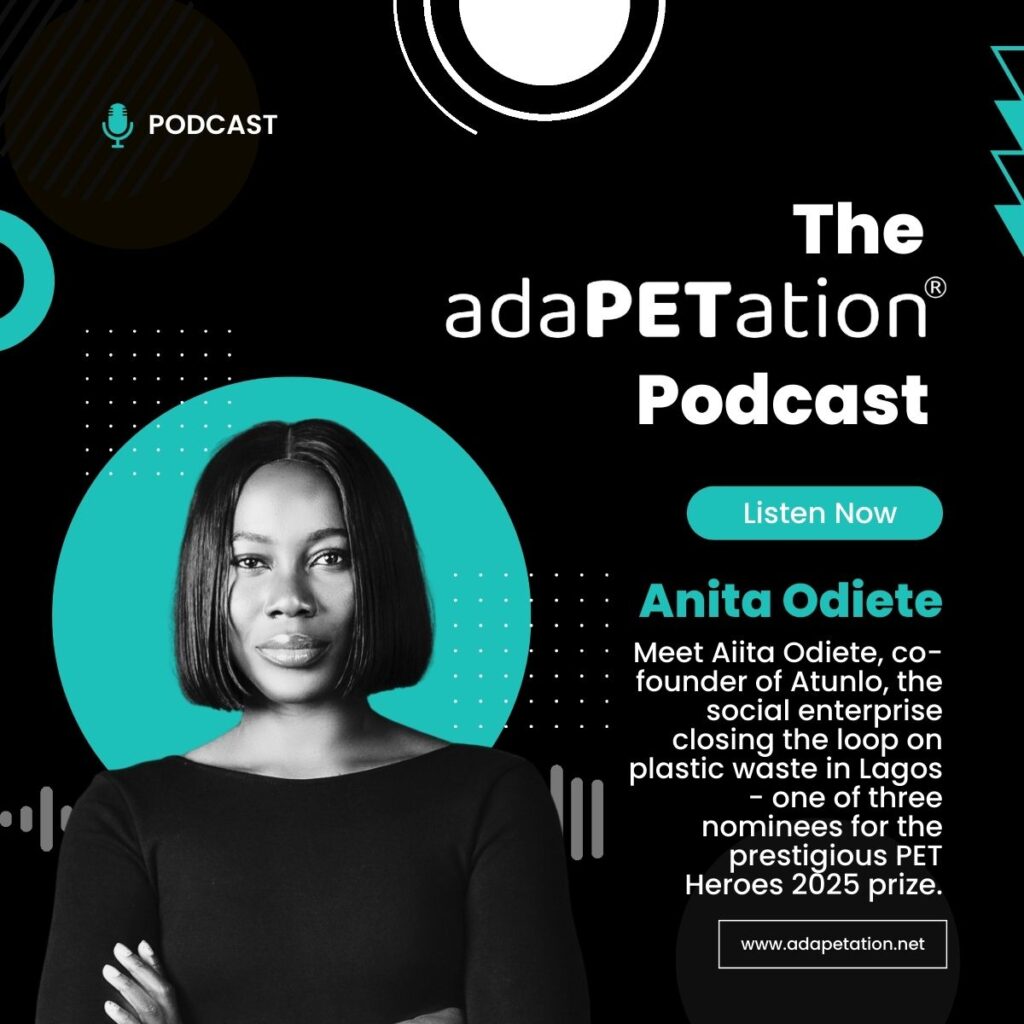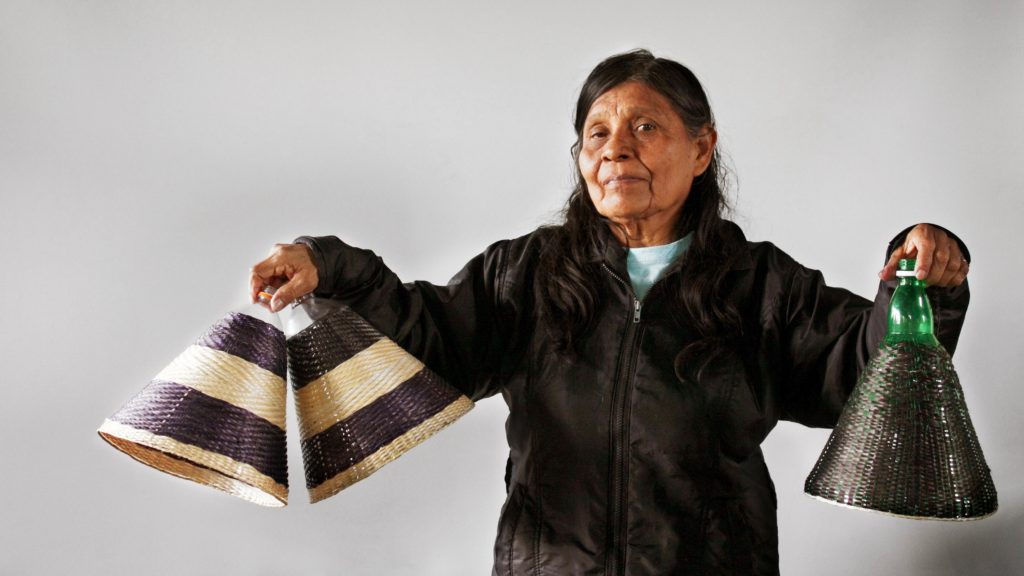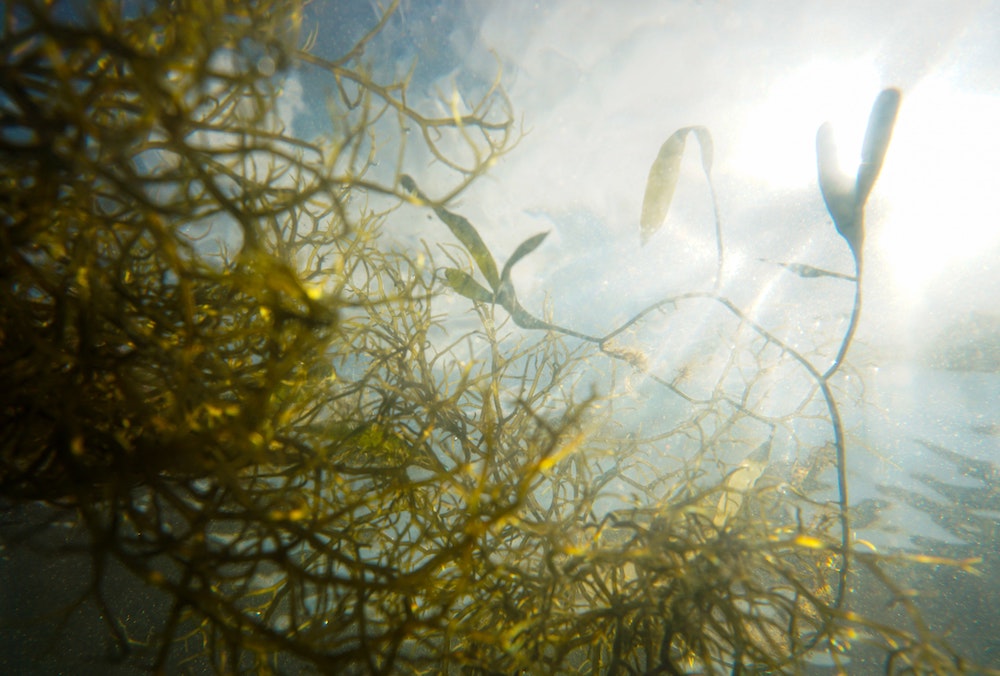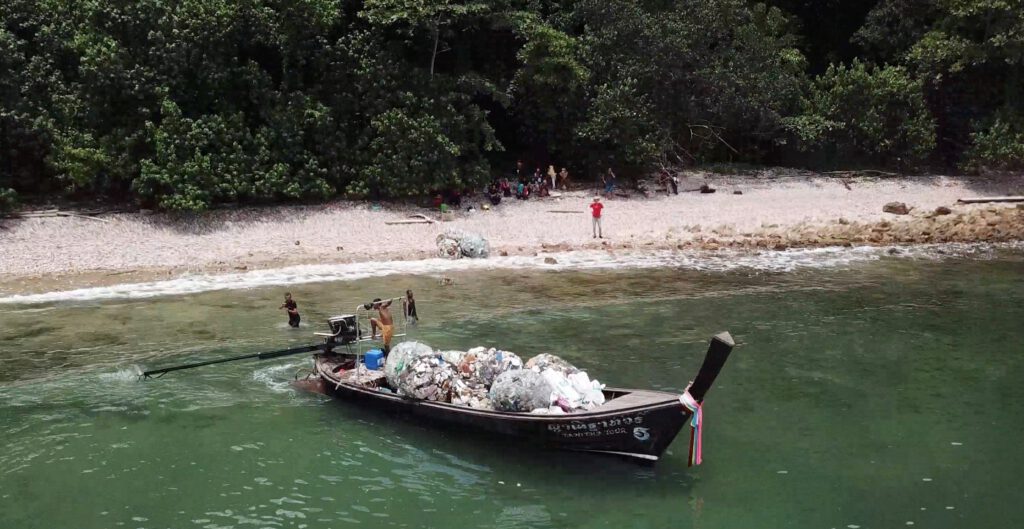
Atunlo's innovative recycling incentives fight both poverty and pollution - PET Heroes 2025 nominee and co-founder Anita Odiete offers community members in Lagos a choice of rewards—cash, education, food, or health insurance—for plastic collected.
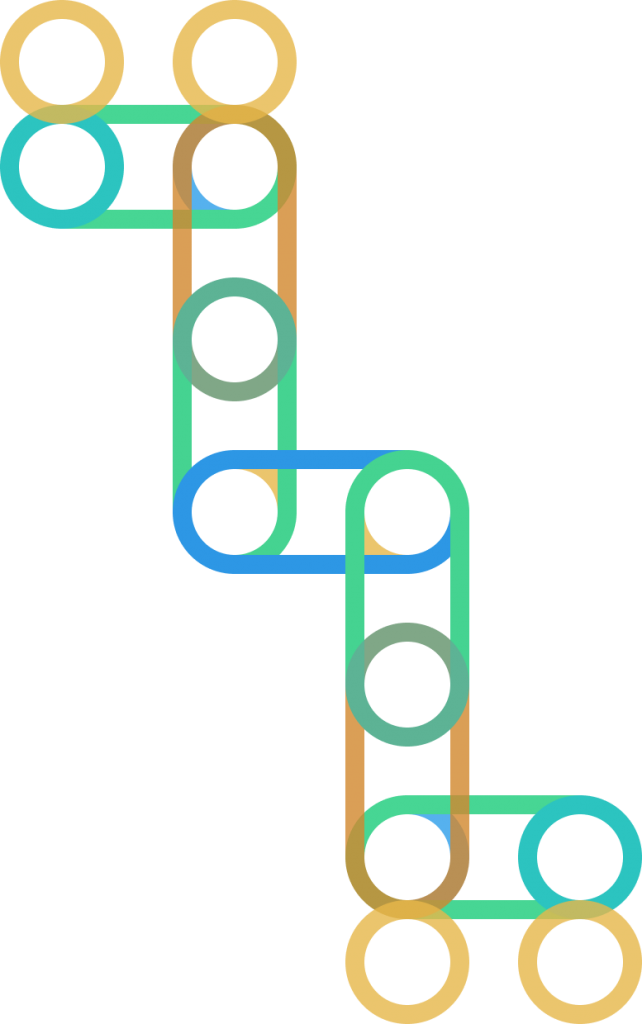
In Lagos, Nigeria, a social enterprise called Atunlo is pioneering an approach to sustainability that goes far beyond conventional recycling programs. Co-founded by Anita Odiete, Atunlo (which means “we have reused it” in Yoruba) has developed an innovative incentive system that simultaneously tackles two pressing challenges: extreme poverty and plastic pollution earning it a place in our shortlist of nominees for PET Heroes 2025.
The dual crisis
The statistics paint a stark picture. Approximately 40% of Nigerians live on less than $1 per day, creating an urgent need for economic opportunities. Meanwhile, Nigeria ranks ninth globally in ocean pollution, with plastic waste being the primary culprit. Traditional recycling efforts capture only about 10% of the country’s waste, leaving massive environmental and economic potential untapped.
“What solution can we put together that touches on solving all these problems?” Odiete asked when conceptualizing Atunlo. The answer came in the form of a multi-faceted incentive system that transforms waste collection from a stigmatized activity into an avenue for financial inclusion, education, and healthcare.
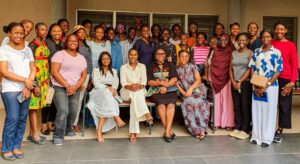
A menu of meaningful incentives
What makes Atunlo’s approach distinctive is its recognition that different community members have different needs. Rather than offering a one-size-fits-all payment system for collected plastics, Atunlo provides a range of incentive options:
- Direct cash payments for immediate financial needs
- Educational incentives including exam fees, textbooks, uniforms, and school supplies
- Food items (uncooked) to support household nutrition
- Health insurance coverage providing access to medical care
This flexible approach ensures that plastic collection addresses each participant’s most pressing needs. For a single mother, it might mean food security for her family. For a concerned parent, it could mean keeping their children in school without the burden of educational fees.
“If you bring your plastic waste, you can get an incentive, whatever incentive you prefer,” explains Odiete. “If you want cash, if you want educational incentives for your children, if you want food items, and if you want health insurance as well, we’re willing to give you any of these incentives in exchange for your waste.”
Transforming schools into sustainability hubs
Perhaps the most innovative aspect of Atunlo’s incentive system is its focus on schools through “Green Clubs” – recycling programs that turn education centers into collection points while creating the next generation of eco-champions.
Students who join these recycling clubs receive comprehensive support for their educational expenses throughout their school years. The broader school population can bring in plastic bottles to redeem for specific educational needs – exam fees, textbooks, uniforms, or school supplies.
The impact extends beyond the practical benefits. Students are given assignments to develop creative ways to reuse waste materials, with remarkable results. “Every time I give that assignment, I’m like, wow, I wouldn’t even think of this,” Odiete shares. “We had a child who used plastic to make a blender… We had someone who made a beautiful flower vase where the flowers were made of broken CDs.”
This creative engagement builds genuine environmental consciousness that students bring home to their families. As Odiete notes, “Even if the parents don’t necessarily listen to the kids, the kids just do what they’ve got to do. Eventually, the parents will tag along.”
Zero-interest financing: scaling economic impact
Beyond individual incentives, Atunlo has created a powerful economic multiplier through its zero-interest loan program for collection agents. This system identifies promising waste collectors and provides them with capital to scale their operations – without the burden of interest payments that would typically make such growth impossible.
One woman’s journey exemplifies this transformation. “We used to give her 100,000 Naira monthly as a green loan,” Odiete recounts. “Because of how we saw that she is ready to grow, she has the resources to grow, at the moment, we give her up to 20 million Naira in a month to gather plastic.”
That’s a leap from less than $70 to approximately $13,400 monthly. With this capital, the collector expanded from employing five people to dozens, creating a ripple effect of economic opportunity throughout her community.
The loan recipients repay with materials rather than cash, creating a self-reinforcing cycle of increased collection, job creation, and environmental impact. Atunlo currently works with approximately 200 collection agents through this financing mode.

Measuring multidimensional impact
The results speak for themselves. In less than two years of operation, Atunlo has:
- Processed over 2.5 million kilograms of plastics
- Created more than 8,000 jobs
- Sensitized over 510,000 individuals on sustainability
- Disbursed over 550 million Naira (approximately $367,000) for recyclables
- Established Green Clubs in four public schools
- Currently processes around 100 tons of plastic monthly
These metrics reflect Atunlo’s holistic approach to measuring impact across environmental, economic, and social dimensions. The organization tracks everything from processing efficiency (aiming to keep waste below 10% during sorting) to CO2 emissions saved, jobs created, and educational outcomes.
Challenges and future vision
Despite these successes, Atunlo faces significant challenges. The business remains capital intensive, with cash flow timing presenting persistent difficulties. Materials must be purchased from collectors immediately upon delivery, but payments from manufacturers can take weeks to arrive. Meanwhile, processing capacity limitations and minimum order quantities from buyers create additional constraints.
Nevertheless, Odiete maintains an ambitious vision for growth. With the potential prize money from their PET Heroes 2025 nomination, Atunlo plans to invest in electric tricycles that would enable collection from residential areas – currently impossible with their larger trucks designed for bulk collection.
“That would increase our processing numbers by at least 20% monthly,” Odiete explains, highlighting how such targeted investments could significantly scale their impact.
Beyond silos: the power of collaboration
For Odiete, the most important lesson from Atunlo’s journey is the necessity of collaboration. “Most of the people that we’ve tried to partner with… are sort of operating in silos. It’s pretty much every man for himself,” she observes. “However, it’s very important for everyone to come together.”
This call for cooperation extends across sectors – from government to corporations to grassroots organizations. By aligning efforts around shared goals, Odiete believes sustainability initiatives can overcome common barriers like limited access to financing, regulatory challenges, and operational bottlenecks.
“We really just need to work together because once we’re working together, holding hands with a common goal, things become easier,” she emphasizes. “No one is struggling.”
A model for comprehensive change
Atunlo’s incentive system demonstrates that environmental solutions are most effective when they directly address people’s immediate needs. By recognizing that different stakeholders—from schoolchildren to collection agents to parents—have different motivations and requirements, the organization has created a sustainability model that generates genuine buy-in across communities.
The result is far more than a recycling program. It’s a comprehensive approach to community transformation that turns waste into opportunity, poverty into entrepreneurship, and environmental challenges into pathways for social change.
As Nigeria and other developing nations continue to grapple with the dual challenges of poverty and pollution, Atunlo’s innovative incentive system offers a powerful template for solutions that recognize the interconnectedness of environmental and economic wellbeing—proving that with the right approach, addressing one challenge can become the means of solving another.
To hear more about her insights and ideas about the importance of empowering waste collectors in Africa and decide who you think should win the PET Heroes 2025 prize, check out the full conversation on the adaPETation® Podcast.
VOTE FOR ANITA ODIETE
Who’s your PET Hero?
The future of plastics is being redefined, and you can be a part of it. Listen to the full podcast with Anita Odiete to delve deep into how PET plastic is driving ecosystem restoration in Africa.
Your support can usher in a new era where plastic, once the problem, becomes an integral part of the solution
Share it
Useful Links
THE HISTORY OF PLASTIC
Throughout the history of plastic, PET has been crucial in keeping food fresh with lightweight and durable packaging solutions that have helped reduce food waste for almost a century. Learn all about the invention of plastic and the important role it has played feeding people and saving the lives of humans and elephants in the adaPETation® timeline of the history of plastic.

